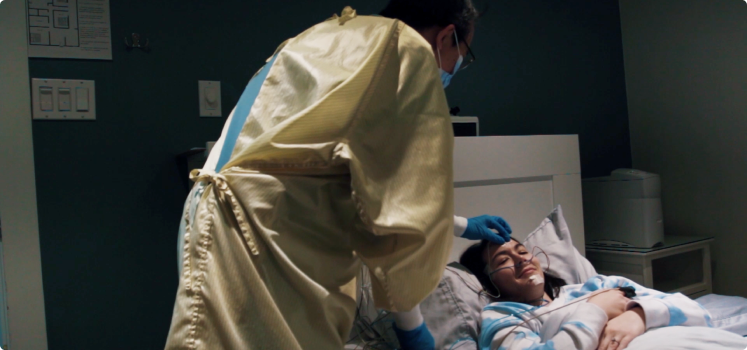What is a Level 1 in-lab Sleep Study?

Sleep studies are tests that measure how well you sleep and how your body responds to sleep problems. These tests can help your doctor find out whether you have a sleep disorder and how severe it is.
Sleep studies are important because untreated sleep disorders can raise the risk for cardiovascular issues such as heart disease, high blood pressure, and stroke, and have an adverse impact on physical, mental, and emotional health.
In addition to other medical conditions, sleep disorders are known to increase the risk of personal injury, such as getting into car accidents or falling.
People are often not aware of their breathing and movements while sleeping and don’t think to talk to their doctors about issues that might be related to sleep problems.
For Health Providers and Doctors
Please download the appropriate Referral Form to send your patients to see us
Kelowna Neuro Sleep Clinic Referral Form
Richmond Sleep Clinic Referral Form
What to Expect at the Sleep Study
Sleep studies are painless and non-invasive. The level 1 in-lab polysomnogram (PSG) and multiple sleep latency test (MSLT) are both done at a sleep centre. The sleep study room may look like a hotel room.
At the study, the sleep technician makes the room comfortable for you and monitors your sleep. After you arrive at the sleep center (usually in the evening), the technician will apply small sensors to your head and body with adhesives.
During the study, these adhesives are set up such that you’re able to move comfortably while you sleep. Elastic belts will be wrapped around your chest and abdomen to measure breathing and a clip will be placed on your finger or earlobe to monitor oxygen levels in your bloodstream as well.
Are these studies covered by MSP?
All the visits to our sleep physicians for consultation as well as overnight sleep studies are covered by your BC Medical Services Plan (or other provincial medical plans if you visit out-of-province).
Think you may have a sleep disorder?
Our sleep specialists are equipped to identify and diagnose sleep-related disorders. If you are having trouble sleeping, speak with your family doctor today on how to get started.
Talk to your doctor
For Health Providers and Doctors
Please download the appropriate Referral Form to send your patients to see us
Kelowna Neuro Sleep Clinic Referral Form
Richmond Sleep Clinic Referral Form
